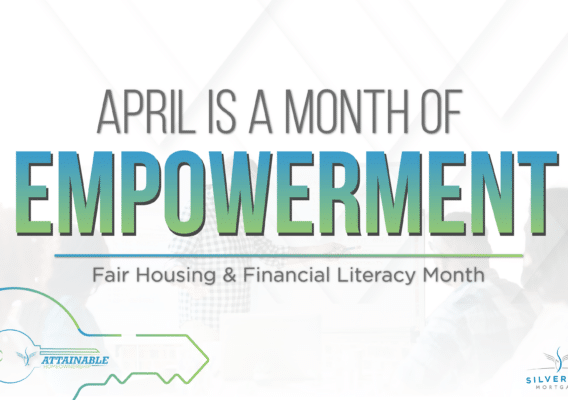Making the decision to buy a home can be scary, especially if you’re not familiar with the process. In the age of digital overload, it’s easy to get bombarded with false information. This may lead you to think you’re not ready to take the plunge into homeownership. However, there are many options available depending on your unique circumstances. Here are just some common myths about buying a home along with useful information that may give you the confidence you need to start down the path of owning a home of your own.
- You need to have a 20% down payment
This misconception is dangerous because 20% of a home purchase is a lot of money. Therefore, the notion of needing that amount up front scares most potential homebuyers away. This common myth may have originated from the fact the without such a down payment, many are subject to having to pay mortgage insurance which can be costly. However, there are plenty of low and no down payment programs available for both first-time and repeat home buyers as well as options to help with mortgage insurance so that your total monthly payments are affordable. The most important thing to keep in mind when deciding to apply for a mortgage is choosing the right program for you and your down payment needs. Once you realize that having a large down payment isn’t necessary, you can start the process with ease.
- You must be at your job for two years
Many people think you must be at the same job for two years or more to even be considered for a home loan. However, what lenders want to see is two years of consistent W2 income. That doesn’t necessarily mean it has to be from the same employer the entire time. Mortgage lenders will look at your specific circumstances when considering your loan application, which means that if there is a small gap between jobs, yet you’ve been steadily employed otherwise, you can still be approved for a mortgage. According to Home Buying Institute, “it depends on the borrower and the amount of real or perceived risk to be eligible for a mortgage.” This means that when your loan application is being reviewed, you will have to explain gaps in employment but it’s not a deal breaker. If you’ve switched jobs in a two-year period, you should not let that deter you from seeking mortgage options.
- The first step is in becoming a homeowner is finding the home
There is a lot that needs to happen before you become a homeowner and chances are the dream home you found will not be there once you’re finally ready to purchase. To avoid disappointment, get pre-approved for a mortgage before you start house hunting. It will help you determine how much you can afford, and a real estate agent is more likely to take you seriously because you’re able to compete with other buyers. Having a loan amount already approved when you start your search means you can focus on the homes you can afford without wasting you or your Realtor’s time and energy. Note that pre-approval isn’t the same as finalizing a home loan, but it will give you a better idea of how to begin your home search as you continue down the path of securing your mortgage. Having a home picked out before being pre-approved is the definition of putting the horse before the cart.
- The school system doesn’t matter if you don’t have kids
If you’re not planning on having school-aged children while living in your home, then you may think you don’t need to consider what school district you’re living in. However, keep in mind that a good school district can impact your home’s value. If you ever plan on selling your home, future potential buyers may have children and you want the home to be desirable to them. Also, a good school district typically means a better neighborhood. Combined, taking the school district into account when deciding on which home to buy equals a higher selling price when you’re ready to move on. Kids or no kids, having your home in a good school district is a win-win situation.
- You can’t buy a home with a low credit score
This may be the easiest myth to fall for. After all, you’ve always heard that your credit score is an important factor in purchasing a home. While this is true, it doesn’t mean that homeownership is impossible. There are definite benefits of having a great credit score such as getting approved for the best interest rates. However, several other factors are considered when applying for a home loan such as your work history. Also, there are many loan programs that help individuals overcome this hurdle. FHA, VA, and USDA loans are just some of the government-backed programs created to work with you despite not-so-stellar credit. Another option available is providing a larger down payment. Whichever route you choose, having bad credit doesn’t mean that your dreams of becoming a homeowner is dashed forever.
What Does It All Mean?
The biggest thing to remember if you’re thinking about applying for a mortgage loan is that everyone’s case is different. Rest assured that your loan originator has worked with a variety of situations and is prepared to handle yours as well. They want to see you succeed and are well-versed in how to make it happen. Many of the myths mentioned above have been around for a long time and it can be easy to think of them as concrete standards. However, you’ll never truly know what your options are until you’ve met with a professional. At Silverton Mortgage, we take pride in combining the right financial tools and our top-rated personal service together for you to meet your individual mortgage needs. Not only do we offer the most competitive mortgage rates, but we also have a wide variety of mortgage products, lowest closing costs, and top industry professionals. Don’t believe the myths that surround the mortgage process until you’ve spoken with someone who can help guide you in the right direction.
You Might Also Like

Navigating the Mortgage Maze: The Mortgage Process Simplified

April: The Month of Empowerment

